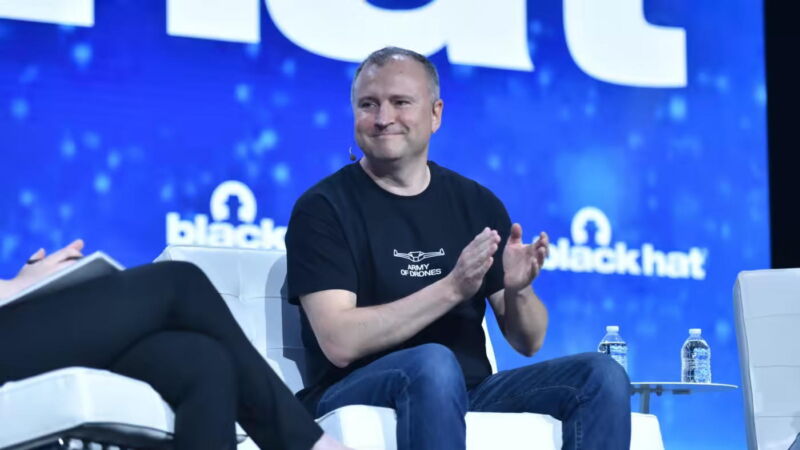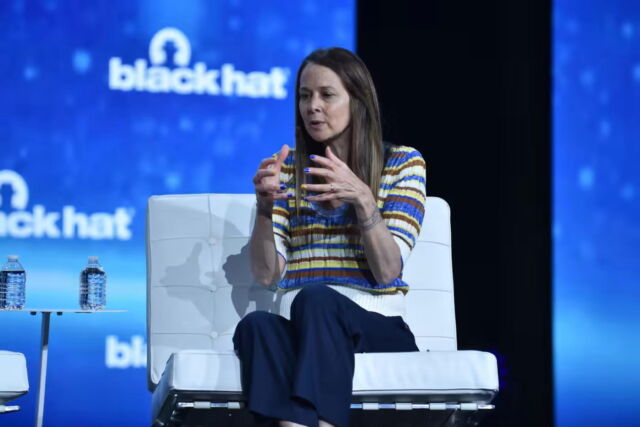
reader comments
42 with
Viktor Zhora, the public face of Ukraine’s success against Russian cyberattacks, received a hero’s welcome earlier this month on stage at Black Hat, the world’s biggest cybersecurity gathering, in Las Vegas.
“The adversary has trained us a lot since 2014,” the year that Russia annexed Crimea, said the deputy chair at Ukraine’s special communication and information protection service. “We evolved by the time of the full-scale invasion [in February last year] when cyber became a major component of hybrid warfare.”
At an event where IT professionals asked for selfies and one man cried on his shoulder, Zhora also shared a fist-bump with Jen Easterly, the director of the US Cybersecurity and Infrastructure Agency. “We take a huge page out of Ukraine’s playbook,” she said. “We’ve probably learned as much from you as you are learning from us.”
But away from the spotlight, the event’s delegates argued that the US and its allies that have helped to fund Ukraine’s cyber-defenses have failed to reflect on Kyiv’s experience.
Cyber executives told the Financial Times that the West is struggling to replicate the collaborative methods that had proved successful in the conflict, complaining they are instead mired in regulatory and legal roadblocks that thwart fast-moving responses that require open sharing of often sensitive or embarrassing information.
“There is a reality that exists in Ukraine that I don’t think most of the West can really put themselves in,” said Matt Olney, director of threat intelligence and interdiction for Cisco Systems.

Last month when the State Department discovered that emails of officials focused on China had been hacked, authorities claimed they had received inadequate information. This prompted Oregon Senator Ron Wyden to request federal probes to push Microsoft, which runs the State Department’s emails, to share more technical data behind the breach.
Similarly, authorities in the UK took 10 months to inform millions of its citizens on the electoral register that their data had been exposed to a group of as-yet unidentified hackers that could have been working on behalf of another country.
Olney and others say that, when these breaches are uncovered, the targeted businesses and government agencies are slow to share that information, including critical technical data that would unmask similar hacking attempts elsewhere.
“I’m in favor of radical transparency,” said John Shier, a senior executive at Sophos, the UK-based cybersecurity company. “That’s when we can be more proactive. That’s when we can make sure we know somebody else is going through the same thing that you’re going through, and you can band together and make sure that you both get through as unscathed as possible.”
© 2023 The Financial Times Ltd. All rights reserved. Not to be redistributed, copied, or modified in any way.





